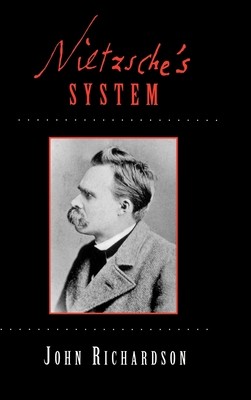
- We will send in 10–14 business days.
- Author: John Richardson
- Publisher: Oxford University Press, USA
- ISBN-10: 0195098463
- ISBN-13: 9780195098464
- Format: 16.3 x 24.1 x 3.1 cm, kieti viršeliai
- Language: English
- SAVE -10% with code: EXTRA
Reviews
Description
This book argues, against recent interpretations, that Nietzsche does in fact have a metaphysical system--but that this is to his credit. Rather than renouncing philosophy's traditional project, he still aspires to find and state essential truths, both descriptive and valuative, about us and the world. These basic thoughts organize and inform everything he writes; by examining them closely we can find the larger structure and unifying sense of his strikingly diverse views. With rigor and conceptual specificity, Richardson examines the will-to-power ontology and maps the values that emerge from it. He also considers the significance of Nietzsche's famous break with Plato--replacing the concept of "being" with that of "becoming." By its conservative method, this book tries to do better justice to the truly radical force of Nietzsche's ideas--to demonstrate more exactly their novelty and interest.
EXTRA 10 % discount with code: EXTRA
The promotion ends in 23d.03:33:22
The discount code is valid when purchasing from 10 €. Discounts do not stack.
- Author: John Richardson
- Publisher: Oxford University Press, USA
- ISBN-10: 0195098463
- ISBN-13: 9780195098464
- Format: 16.3 x 24.1 x 3.1 cm, kieti viršeliai
- Language: English English
This book argues, against recent interpretations, that Nietzsche does in fact have a metaphysical system--but that this is to his credit. Rather than renouncing philosophy's traditional project, he still aspires to find and state essential truths, both descriptive and valuative, about us and the world. These basic thoughts organize and inform everything he writes; by examining them closely we can find the larger structure and unifying sense of his strikingly diverse views. With rigor and conceptual specificity, Richardson examines the will-to-power ontology and maps the values that emerge from it. He also considers the significance of Nietzsche's famous break with Plato--replacing the concept of "being" with that of "becoming." By its conservative method, this book tries to do better justice to the truly radical force of Nietzsche's ideas--to demonstrate more exactly their novelty and interest.


Reviews